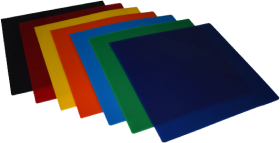- Jump To:
- Physical Properties
- Resistance
Polyester Vs Polyether
What’s the Difference?
There are two main types of polyurethane: polyester and polyether. Both are highly effective in a diverse range of industries. Polyester urethane and polyether urethane are elastomers, meaning that they possess elastic properties, and both offer unique performance properties. What are the main differences between polyester vs polyether urethanes? Below is a breakdown of each type’s physical properties and what kind of projects they are suited for.

Physical Properties
Abrasion Resistance Properties
There are two types of abrasion resistance sliding and impingement. Sliding refers to scraping and rubbing abrasion while impingement refers to particles or objects striking the urethane surface at a high angle.
- Polyester has a high capacity for sliding abrasion resistance which makes it ideal for applications like scraper blades and chute liners.
- Polyether offers excellent impingement abrasion resistance which makes it the choice for sandblast curtains and bumpers that get hit head-on.
Heat Resistance Properties
Both polyester and polyether urethanes perform well at elevated temperatures, however:
- Polyesters withstand high temperatures longer and are more resistant to heat aging.
- Polyethers are much less susceptible to dynamic heat build-up. That is why they are the choice for high-speed rollers where the rapid flexing creates heat.
Low Temperature Flexibility
All elastomers (rubbers, urethanes, silicones, etc.) get harder and less flexible as temperatures drop and will eventually reach a temperature at which they become brittle. Urethane’s brittle point is between -40°F and -100°F depending on the formulation.
- Polyether is less affected by cold temperatures.
Hardness Properties
Both polyesters and polyethers can be made to any hardness from marshmallow-soft to bowling ball hard.
Rebound Properties
Products such as skate wheels need to return the energy they absorb when your foot pushes them into the pavement (rebound); otherwise, you would feel like you are running in soft sand. Sand absorbs most of the energy from your foot and makes you run sluggishly.
- Polyether provides much higher rebound and therefore is the choice for skate wheels and high-speed rollers.
Shock Absorption Properties
Sometimes you want the product to absorb the energy it receives (opposite of rebound).
- Polyester is the choice for shock absorption and is used widely in vibration dampening applications.
Resistance
Cut and Tear Resistance
Urethanes are known for their toughness, however,
- Polyesters have higher tensile strength and higher cut and tear resistance than polyethers.
Water and Moisture Resistance
If the product is to be submerged or used in a very humid condition it should be a
- Polyether because polyether has excellent hydrolytic stability.
Oil, Fuel and Solvent Resistance
If the product will come in contact with oils, fuel or solvents (even vapors) your choice should be a
- Polyester as they are more resistant to attack from these harsh chemicals.
Ask Our Experts.
Contact us today to learn how we can meet your project’s requirements.
